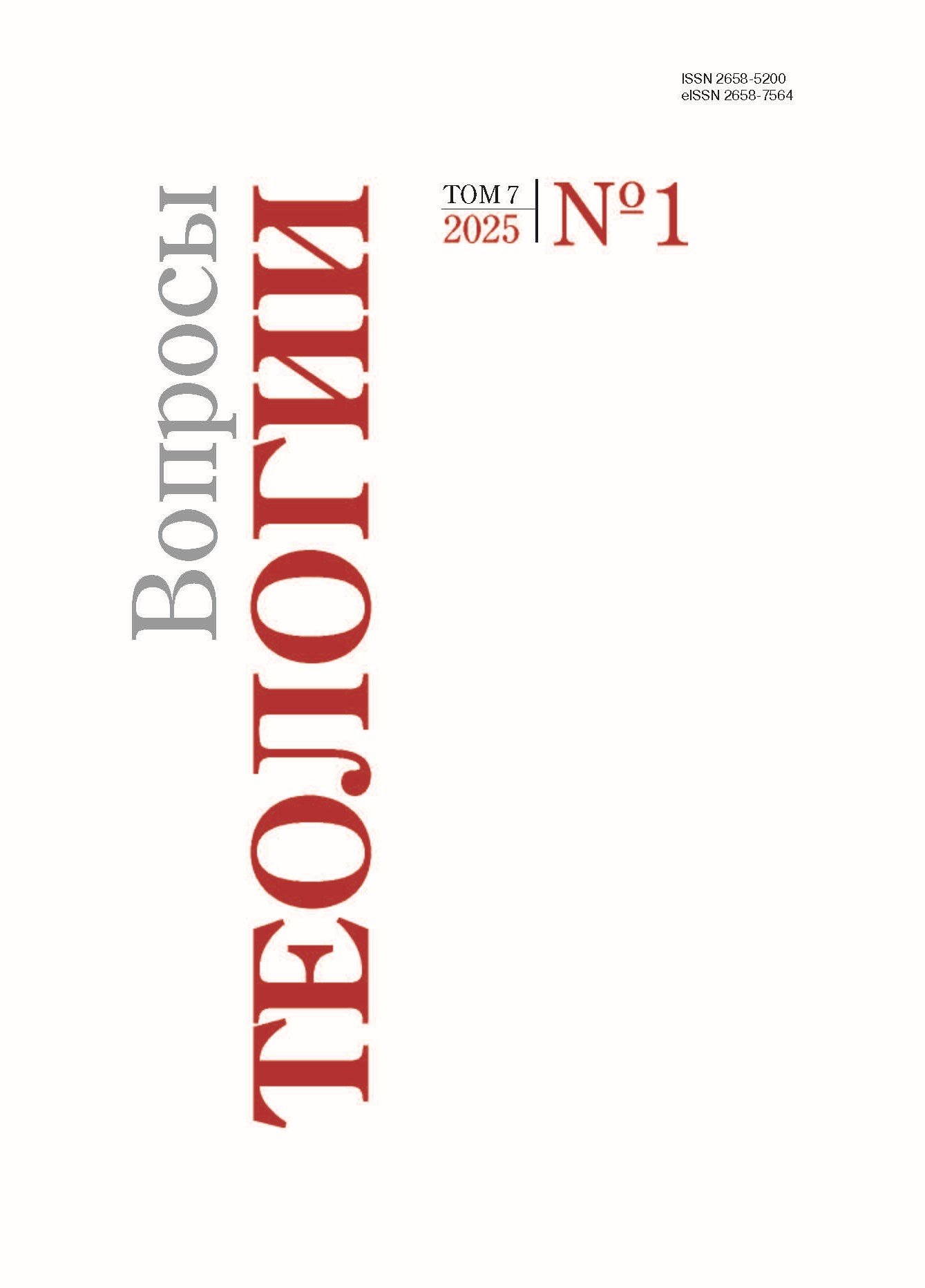Natural theology of archpriest Fyodor Golubinsky and his doctrine of the proofs of the existence of God
DOI:
https://doi.org/10.21638/spbu28.2025.104Abstract
The article provides an analytical analysis of the system of natural theology of archpriest Fyodor Golubinsky (1797–1854), as a result of which its main characteristics were identified. The works of thinkers of that era in today’s secular society are of great interest and need scientific research and the disclosure of their significant apologetic potential by modern scientists. Fyodor Golubinsky is the founder of the theological and philosophical tradition of the Moscow Theological Academy. The article briefly outlines the structure, origins and method of the professor’s natural theology. It is noted that arguments in favor of the existence of God underlie all constructions in the natural theology of professor. He was an exponent of philosophical realism, in which ontological proof took a central place. It can be noted that in the next century, the most prominent expert in the field of proof of the existence of God, S. L. Frank, will formulate an ontological argument on the same foundation. Successful execution Fyodor Golubinsky’s task of substantiating the existence of God with an attempt to refute Kant’s criticism of ontological proof allows us to assert that the professor managed to offer a well-founded system of natural theology. The article notes that the epistemological status that Fyodor’s evidence is consistent with the position of modern researchers in the field of rational theology. The result of the study was the identification of truly relevant ideas for the development of modern Russian theology.
Keywords:
natural theology, Moscow Theological Academy, proof of the existence of God, Divine attributes, metaphysics, I. Kant, idealism, realism, ontology
Downloads
References
References
Downloads
Published
Issue
Section
License
Articles of "Issues of Theology" are open access distributed under the terms of the License Agreement with Saint Petersburg State University, which permits to the authors unrestricted distribution and self-archiving free of charge.




